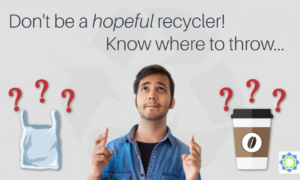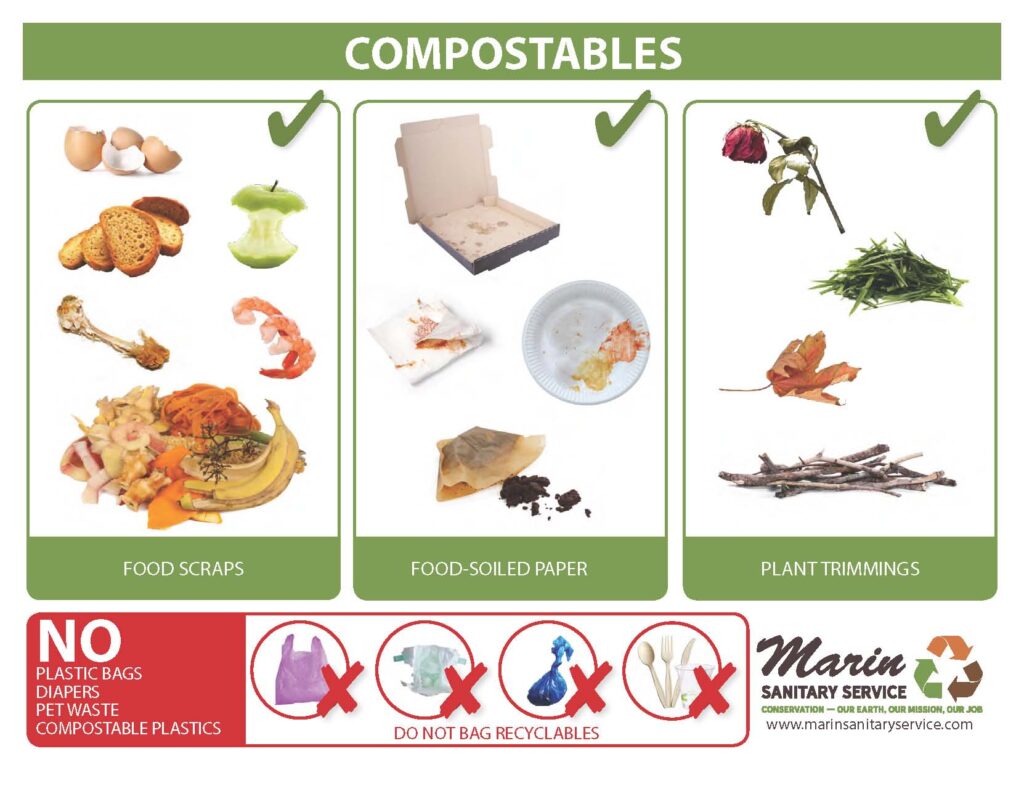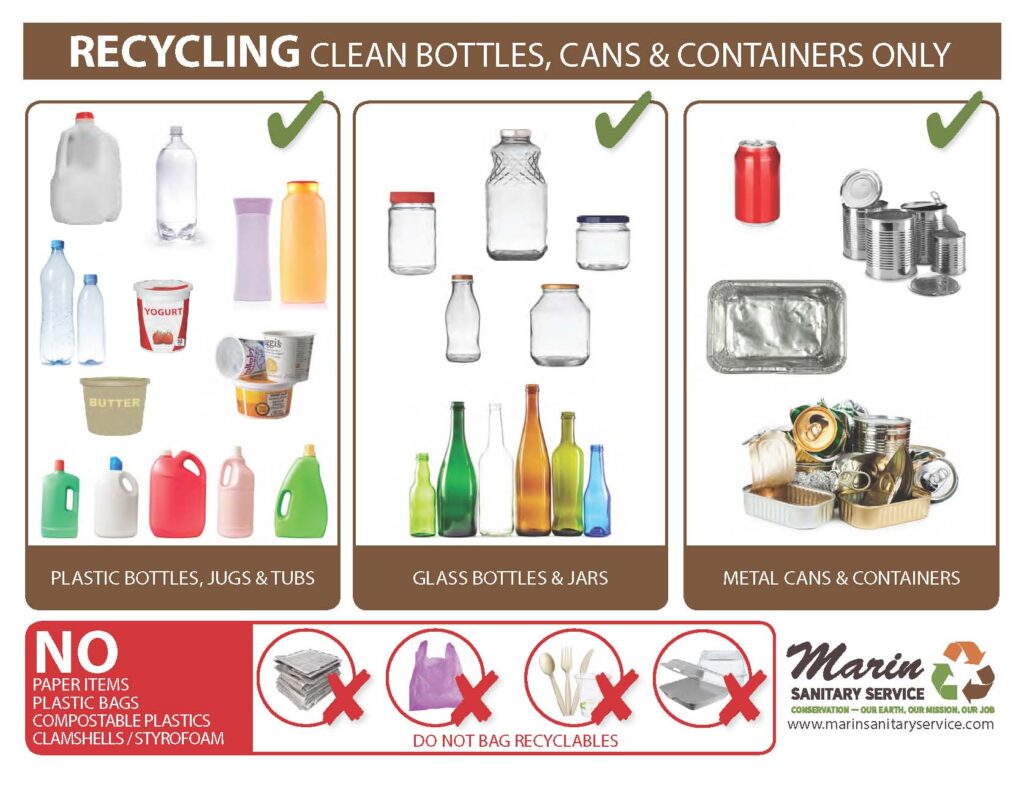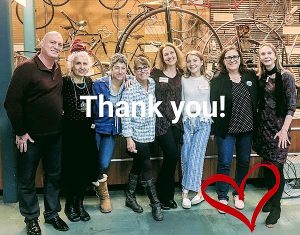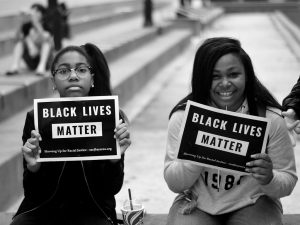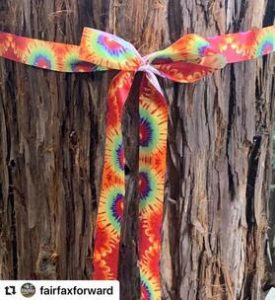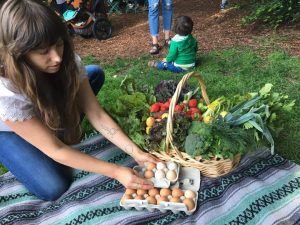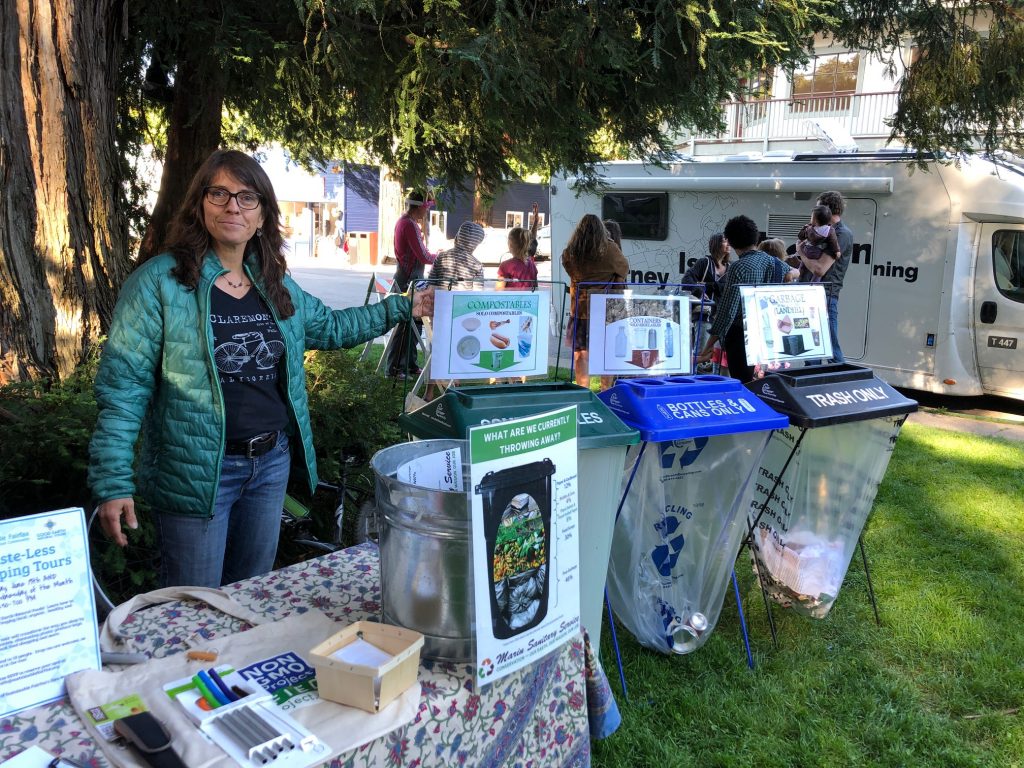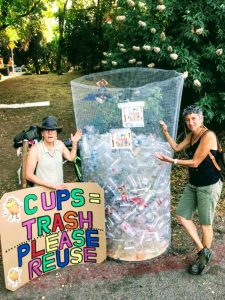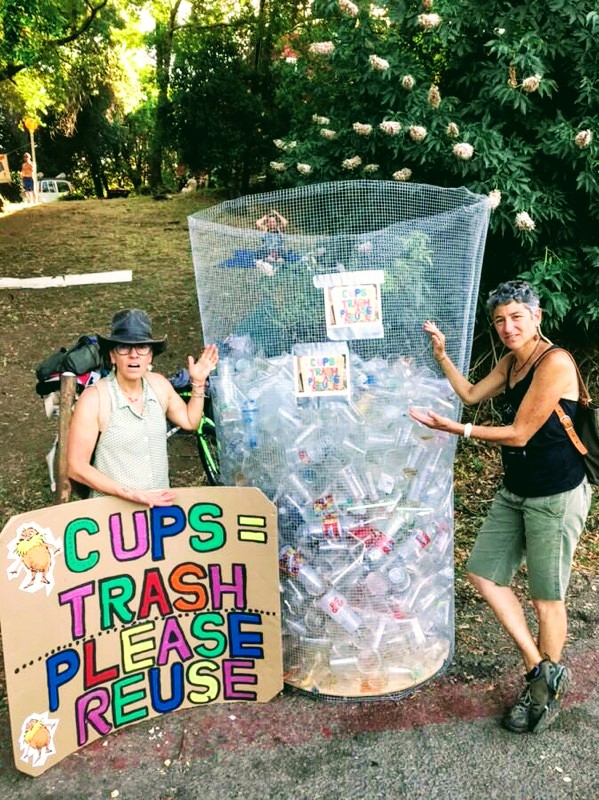Contamination in our recycling and compost is a huge deal. Just because you want to recycle something, it doesn’t mean it’s actually recyclable. So the wrong thing in the wrong bin is called contamination and has all sorts of implications. But first, remember that there are human beings who sort your recycling — so when you put a used tissue, a dirty pizza box, food soiled paper — there are people who are sorting out your nasty garbage. Clean recycling is dirty enough, but it’s not nasty. Managing your waste and recycling is respectful to the earth but also to the front line workers who handle your recycling (note- trash is never sorted, and contamination in compost is pulled out after it’s been largely composted – at great expense btw).
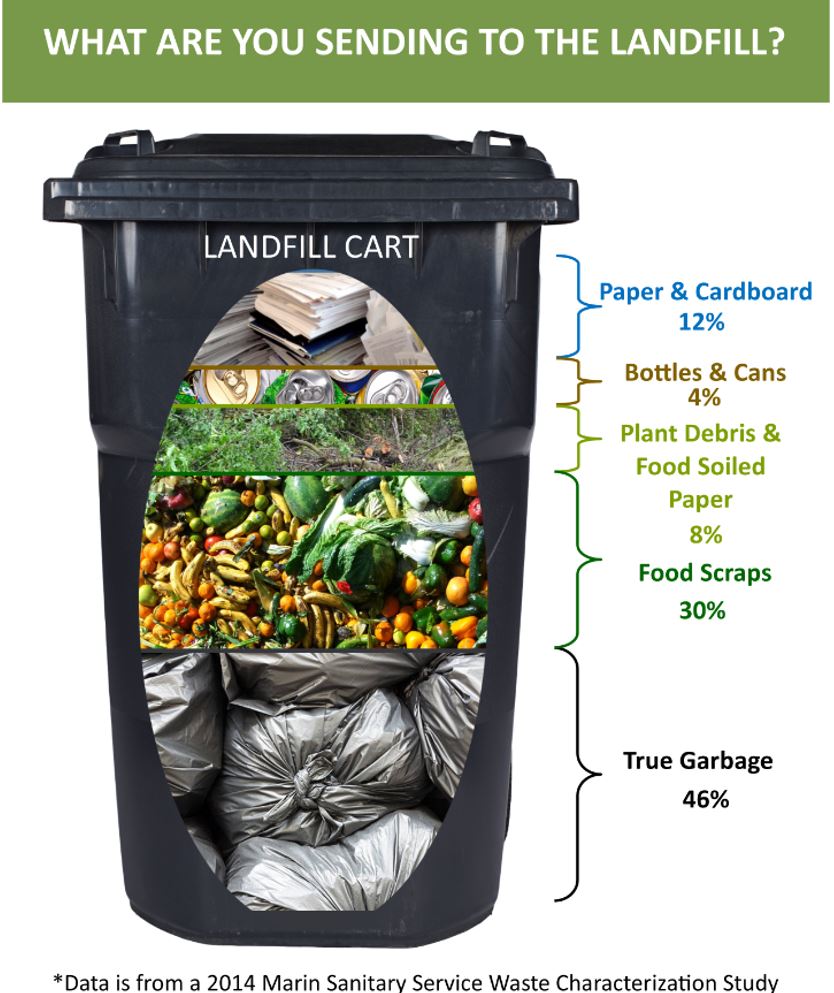
On a recent Sustainable Fairfax Community Chat, we talked with Casey Fritz from Marin Sanitary (MSS). Casey shared that over 50% of what Fairfax residents are sending to the landfill is recyclable or compostable–that’s a lot of room for improvement! She went through the list of the do’s and don’ts and it’s confusing because the rules changed when overseas markets announced they didn’t want our contaminated recycling any longer because we were essentially exporting our landfill waste and pollution. You can watch the entire zoom chat here, but highlights of the talk, along with my commentary, include:
- the ONLY plastics that are actually recycled are water bottles, jugs (like detergent bottles), and tubs (like yogurt containers). That means that all the other packaging, clam shells (like lettuce and take-out food containers) — it’s ALL garbage. Don’t let yourself feel better by recycling it!
- Compostable plastics — ALL of it — is trash. Yes it’s crazy making that it says compostable, but it does NOT break down in 6 months so our (and most) commercial compost facilities cannot take it. And don’t be fooled by the fact that Recology takes it in the city. They pay people to pull it out, where it is trashed. Yup. Makes no sense. I used to think that purchasing compostable cups is still better even if they’re landfilled because it’s plant-based material. That’s not really true either, but it’s also a little complicated. There’s lots of pressure on manufacturers to make this right, so I remain hopeful but in the meantime – – just say no to these fraud materials.
- Paper needs to be clean and dry. Food contaminated paper is compost. It’s that easy.
- MSS has a dual stream recycling system. They used to be criticized for not having a single-stream system, but since the markets have shifted so dramatically, other recyclers are wishing, big-time, that they had a dual stream. Sorting into the proper streams is really important. check out this video that goes a long way in explaining this:
It’s a great description of some of the issues described here. Take note about the plastics bags. They NEVER ever go in either recycling container, or the compost for that matter. Skip plastic bags altogether. I use a brown paper bag in my trash can. I line it with egg container to give it a little more strength. (here’s another video that really shows people sorting our recycling — it’s a little longer)
I have lots of tips and tricks, I’m sure you do too. When in doubt – throw it out! Lets keep this conversation going! Our garbage represents our consumption. Everything we buy represents embedded energy and a tremendous use of resources that you can’t see. It’s our individual and collective responsibility to our health, to our kids health, to the planet, to do this better. Let’s make better purchasing decisions to make less crap in the first place, but at the end of the day, let’s put stuff in the right bin! It’s not that hard but does require intentionality. It’s also a sign of respect to the front line waste workers sorting our recycling! They will thank you and so with the earth!
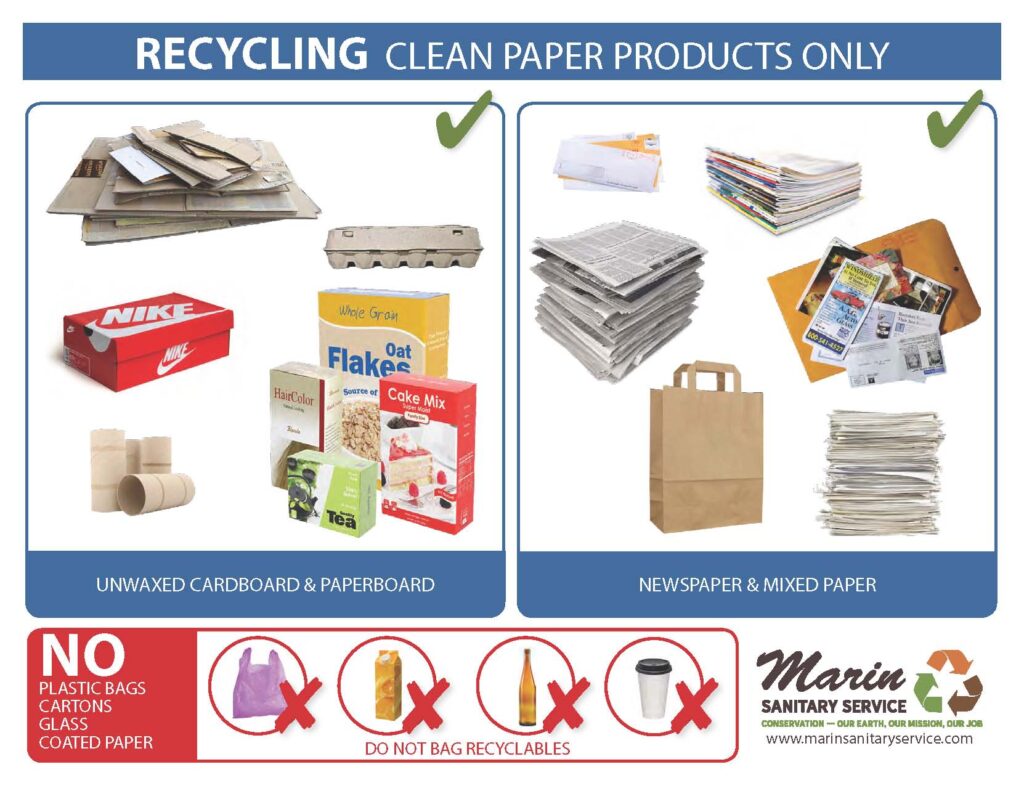
Join Sustainable Fairfax’s Zero Waste Committee – we have work to do and would love your energy. We meet on the 3rd Tuesday of the Month at 7:00. Reach out to chat about it. laurav@sustainblefairfax.org
